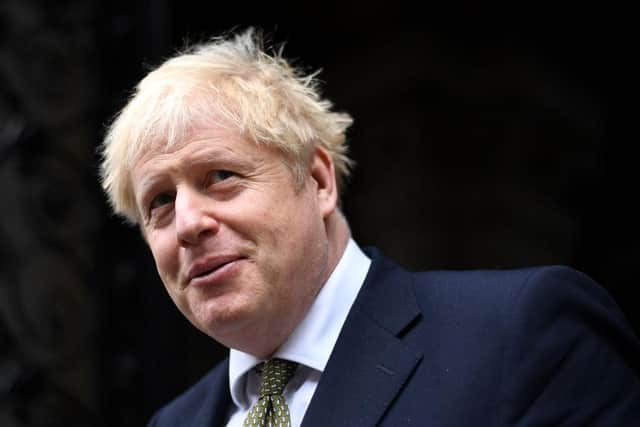Boris Johnson to give press conference amid reports of four-week national lockdown
and live on Freeview channel 276
The Prime Minister is expected to be joined by his chief medical and scientific advisers, Professor Chris Whitty and Sir Patrick Vallance, in Downing Street at 5pm today, Saturday, October 31, following a meeting of his Cabinet earlier in the afternoon.
Mr Johnson has so far resisted pressure to introduce nationwide restrictions, opting instead for a localised tier system, but he is reportedly considering closing everything except essential shops and education settings for a month from Wednesday.
Advertisement
Hide AdAdvertisement
Hide AdThe policy shift comes after new data showed the extent of cases across England. The Office for National Statistics estimated that 568,100 people in households were infected with coronavirus in the week ending October 23.


Members of the Government’s Scientific Advisory Group for Emergencies (Sage) have backed the introduction of more stringent measures.
Professor Sir Jeremy Farrar said the consequences of sticking with the current “insufficient” restrictions would be “much worse” than going for a second lockdown.
The director of the Wellcome Trust said: “The sooner we act, the sooner we can start to recover. It will be a very difficult few weeks now and no one can underestimate the toll that will take on people.
Advertisement
Hide AdAdvertisement
Hide Ad“But the consequences of sticking with the current insufficient restrictions would have been much worse.”
Sage member Professor Calum Semple told BBC Radio 4’s Today programme: “For the naysayers that don’t believe in a second wave, there is a second wave.
“And, unlike the first wave, where we had a national lockdown which protected huge swathes of society, this outbreak is now running riot across all age groups.”
Professor John Edmunds said the only way to have a “relatively safe” Christmas is to take “stringent” action now to bring the incidence of the virus “right down”.
Advertisement
Hide AdAdvertisement
Hide AdIt comes after a senior Government scientific adviser said it is “definitely too late to think that the two-week circuit-breaker on its own will sort this out”.
“It would bring it down a bit but it wouldn’t be enough to bring (the R value) right down. A two-week circuit-breaker would have an effect but now almost certainly it would need to go on for longer to have a significant effect.”